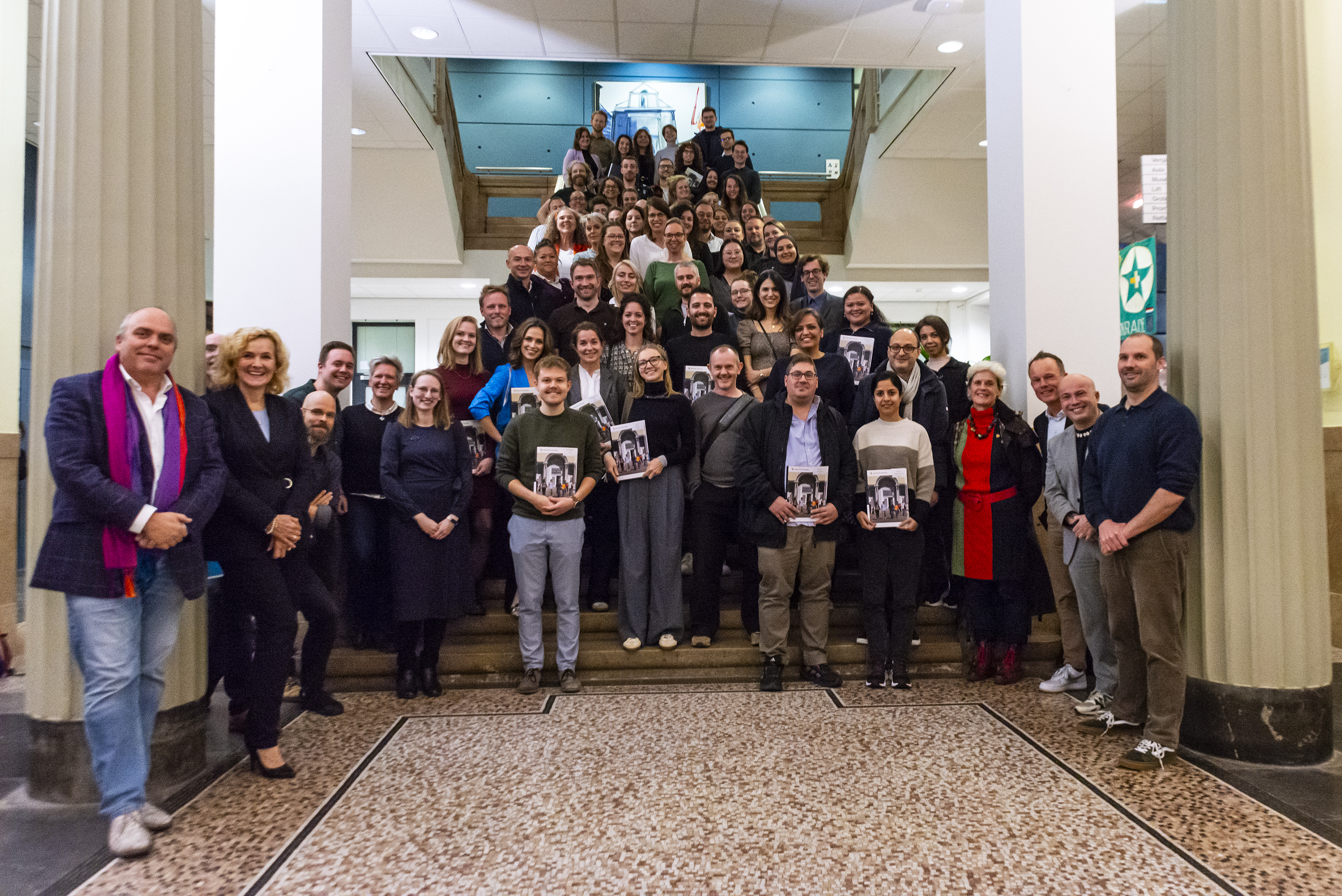More than another ‘to-do’: how the UTQ helped me rethink my teaching
At Maastricht University, the University Teaching Qualification (UTQ) is a professional development programme designed to strengthen teaching and learning. It supports teachers in developing core teaching competencies through a combination of workshops, peer learning, on-the-job experience, and structured reflection.
For Elian Sieben, a teacher-lecturer at University College Maastricht, the UTQ trajectory turned out to be far more meaningful than expected.
"At first, the University Teaching Qualification felt like one more task on a long to-do list … It turned out to be a chance to reconnect with what quality teaching really means."
In this article, Elian reflects on his experience.
When I became a university teacher, I discovered that my job entailed a broad range of tasks: preparing tutorials, making assessments, tweaking rubrics, grading, and … oh, this UTQ! Initially, I saw the University Teaching Qualification as an extra ‘to-do’ that would come on top of an already strenuous academic workload. In hindsight, however, I now realise that the UTQ just formalises what I value most in teaching: incorporating the most recent insights and best practices in education.
In that respect, the UTQ trajectory offered me three important benefits. It provided me with a springboard to engage with a dedicated community of practice; it challenged me to reflect on and innovate my teaching; and it gave me tools to merge theoretical knowledge with practical applications in the classroom. More specifically, my UTQ experience inspired me to improve the Capstone (Bachelor Thesis) process at University College Maastricht (UCM).
A community and a space to reflect
The UTQ cultivates a community of practice among teaching professionals that fosters the exchange of best practices. Through various workshops and discussion boards, the UTQ trajectory connected me with teaching professionals from all over the university, which greatly enhanced my network. The many conversations I had with educators, both like-minded and those with different opinions, were especially insightful. The variety of ideas and questions we discussed helped me reflect on my course setup and my role as a tutor.
In the hustle and bustle of a workday, I often forget to take a breather and reflect on potential course improvements. Nonetheless, reflecting on education is just as important as actually doing it. The UTQ forced me to reconsider my current teaching practice and offered handles for making improvements.
Furthermore, the UTQ trajectory encouraged me to take on new responsibilities: in my case, this meant taking over coordination for an advanced-level course with over 70 students from both UCM and the Maastricht Science Programme (MSP). A daunting task in the beginning, but one that provided me with invaluable experience regarding the ins and outs of course coordination.
Turning theory of course design into better student support
One of the key insights I gained from the UTQ was how to translate theoretical principles of constructive alignment into practical improvements in course design. This was especially relevant for my role in the Capstone team, where our challenge was to better support students writing their bachelor's thesis. The process involved many moving parts and stakeholders, and our aim was to ensure they worked together smoothly.
The UTQ emphasised the importance of creating a learning environment in which students can confidently engage with independent research. A central aspect of this is understanding and applying research ethics. At first, the Capstone team handled the entire ethical review process internally, communicating decisions via email and organising meetings with involved staff. This was inefficient, unclear for students, and time-consuming for the team.
Constructive alignment teaches us that intended learning outcomes (ILOs), teaching and learning activities (TLAs), and assessment should be closely aligned. Because we had revised the ILOs for Capstone to better reflect the steps of the research cycle, we needed TLAs that allowed students to practise each stage. This also included dealing with research ethics.
Instead of continuing to handle ethical approval through mail, we introduced a more integrated learning opportunity: students now meet in person with a dedicated Ethical Advisory Committee (EAC). This change created a clearer and more meaningful experience. It also put into practice the four CCCS principles I explored in the UTQ:
Contextual: students engage with ethics in a real-world setting, with input from experts.
Constructive: they draw on prior knowledge built throughout the curriculum.
Collaborative: they discuss their application with their Advisor before submitting.
Self-directed: they take ownership of their work by synthesising feedback into an ethically sound Research Proposal.
The article continues under the photo.

Through discussions with UCM management and staff, we established the EAC as an independent body responsible for Capstone ethics applications. This improved clarity for students and reduced the administrative load on the Capstone team. We now have more time to focus on refining other aspects of the course. In the longer term, the EAC may support other UCM courses, particularly Research Methods I and II. These courses already teach students to formulate research proposals, with a strong emphasis on ethics as well. Aligning these predecessing ILOs and TLAs with Capstone creates a more coherent and congruent learning trajectory.
By allowing students to work with the EAC before they begin Capstone, we introduce earlier feedback moments that strengthen their understanding and readiness. This helps make the final assessment phase more robust, as students are better prepared to demonstrate what they have learned across their curriculum.
In that sense, feedback from students has been positive. They find the ethical review process clearer and value the opportunity to discuss their work with an expert. They receive timely, relevant feedback and better understand how and why to adapt their methodology to meet ethical standards.
An added benefit is that the EAC draws from a rotating pool of trained UCM staff, expanding awareness and involvement in research ethics across the teaching community. This small change, grounded in principles of constructive alignment emphasised during the UTQ trajectory, has improved the experience for both students and staff.
By Elian Sieben, Teacher-Lecturer at University College Maastricht (UCM)
Interested in more Teaching & Learning insights?
Also read
-
If a machine can write a flawless essay, what’s left for the writer?
UCM graduate Robin van Wasen traces how writing has shaped her learning, identity, and voice, and asks whether AI, despite its fluency, can ever replace the intent, authenticity, and connection that define human writing.
-
Teacher Information Points at UM
UM faculties now host Teacher Information Points (TIPs) that offer local, “just-in-time” and on-demand support for teaching staff. The aim is simple: to provide help that is closely connected to day-to-day teaching practice.
-
How I rely on my university-taught writing skills, now that I use ChatGPT as my daily assistant at work: perspective of a recent graduate
How does a recent graduate transition from using AI tools with caution at university to embracing them at work? In this article, Helen Frielingsdorf shares her experience of adapting to AI, particularly ChatGPT, in her professional life.